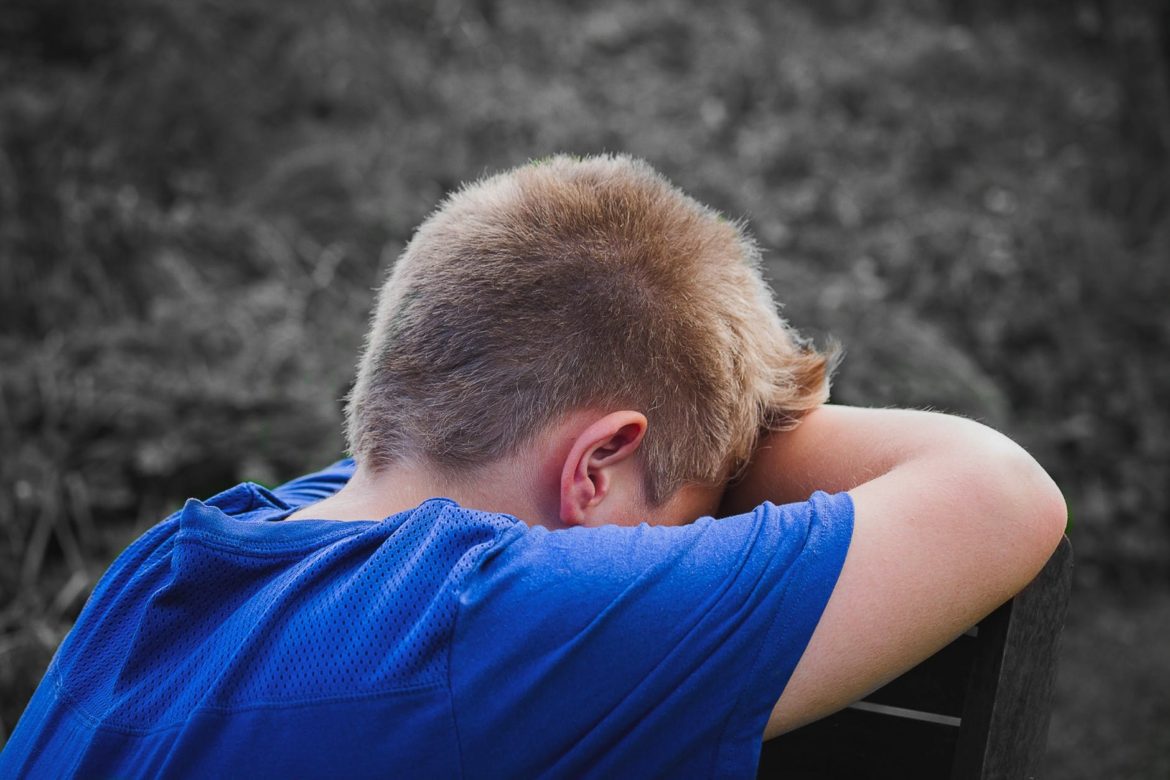“This new generation whines, whines, whines,” I can just hear Christians complain.
Well, we dismiss the warning signals at our own peril.
Far worse, at our precious children’s peril.
The New York Times has a terrific read on a rare but real phenomenon — depression among children, ages 3-7.
It’s often a precursor to serious depression later on in life, and I remember my first bout of nihilistic thought around the age of 4-5. And by that I mean, I couldn’t imagine living the rest of my life and just wanted to get it over with. This, despite two loving parents.
Of course, I didn’t share those persistent, nihilistic thoughts with anyone, and of course most children who have them don’t. They barely understand them. But that doesn’t mean they’re not feeling them.
We can already hear the skeptics, right? “You just want to line the pockets of big pharma by giving these kids antidepressants.”
No, child psychiatrists certainly don’t want that for children as young as these.
Instead, there are two things they suggest we do.
First, look out for signs that your child is seriously depressed.
“When young children are depressed, Dr. Kovacs said, it’s not unusual for “the primary mood to be irritability, not sadness — it comes across as being very cranky.”
The best way for parents to recognize depression in young children is not so much by what a child says as by what the child does — or stops doing. Look for “significant changes in functioning,” Dr. Kovacs said, “if a child stops playing with favorite things, stops responding to what he used to respond to.”
This might mean a child loses interest in the toys or games or jokes or rituals that used to be reliably fun or entertaining, or doesn’t seem interested in the usual back and forth of family life.
The best way for parents to recognize depression in young children is not so much by what a child says as by what the child does — or stops doing. Look for “significant changes in functioning,” Dr. Kovacs said, “if a child stops playing with favorite things, stops responding to what he used to respond to.”
This might mean a child loses interest in the toys or games or jokes or rituals that used to be reliably fun or entertaining, or doesn’t seem interested in the usual back and forth of family life.”
So what’s a concerned parent to do?
First, talk to your pediatrician. They should know about local resources for helping this kind of thing.
Second, get treatment.
It’s often called PCIT (“Parent-Child Interaction Therapy“) and helps parents learn how to praise their child in ways that bolster their feelings of self-worth, because remember self-loathing is a warning sign of depression in a child.
Third, Christians, we really need to to understand that children are children.
If we tell them they’re accepted by Christ and beloved, what does that really mean to a child who believes they’re not even accepted and loved by anyone?
It’s up to us to model Christ’s love while we tell them about his love. Otherwise, it’s counterproductive.
And remember that a five year old is a five year old!
Their brains aren’t really great yet at even processing Christianity or 99% of the Bible stories most Christian parents tell them. Of if they do, they get the wrong thing from them because these are still kids who think monsters live under the bed. On no evidence, and against our assurances.
I can tell you, without a doubt, that those Bible stories were probably the most disturbing thing swirling around in my four year old brain, and it’s remarkable that in a Christian culture where movies must be “nice, sweet, and gentle” (vomit) even for sixteen year olds, we nevertheless regale kindergartners in Sunday school with stories about God drowning everyone in the world in the flood.
The disconnect is astonishing.
Think about it this way.
When Jesus told the kids to come chat with him, do you think he told them the story of the Flood? Or about Jacob tricking Esau out of his birthright? Or about Adam and Eve? Or about Samson.
I’d guess he told them something very simple and deeply meaningful, reassuring and loving for a five year old — something that proved that he brought nothing but good news to even the smallest among us.
However, remember, that just as in adult depression, childhood depression can be impervious to a message, and if we notice these depressive behaviors in our very young kids, we should talk to our pediatrician, and we should get help and we should also be the help, and run and play with them, and talk with them, and encourage them to name their emotions, and fill their hearts with the fact — the utterly Biblical fact — that they are beyond special, loved without condition, by both us and Jesus.
[Free Photo: Pexels]

